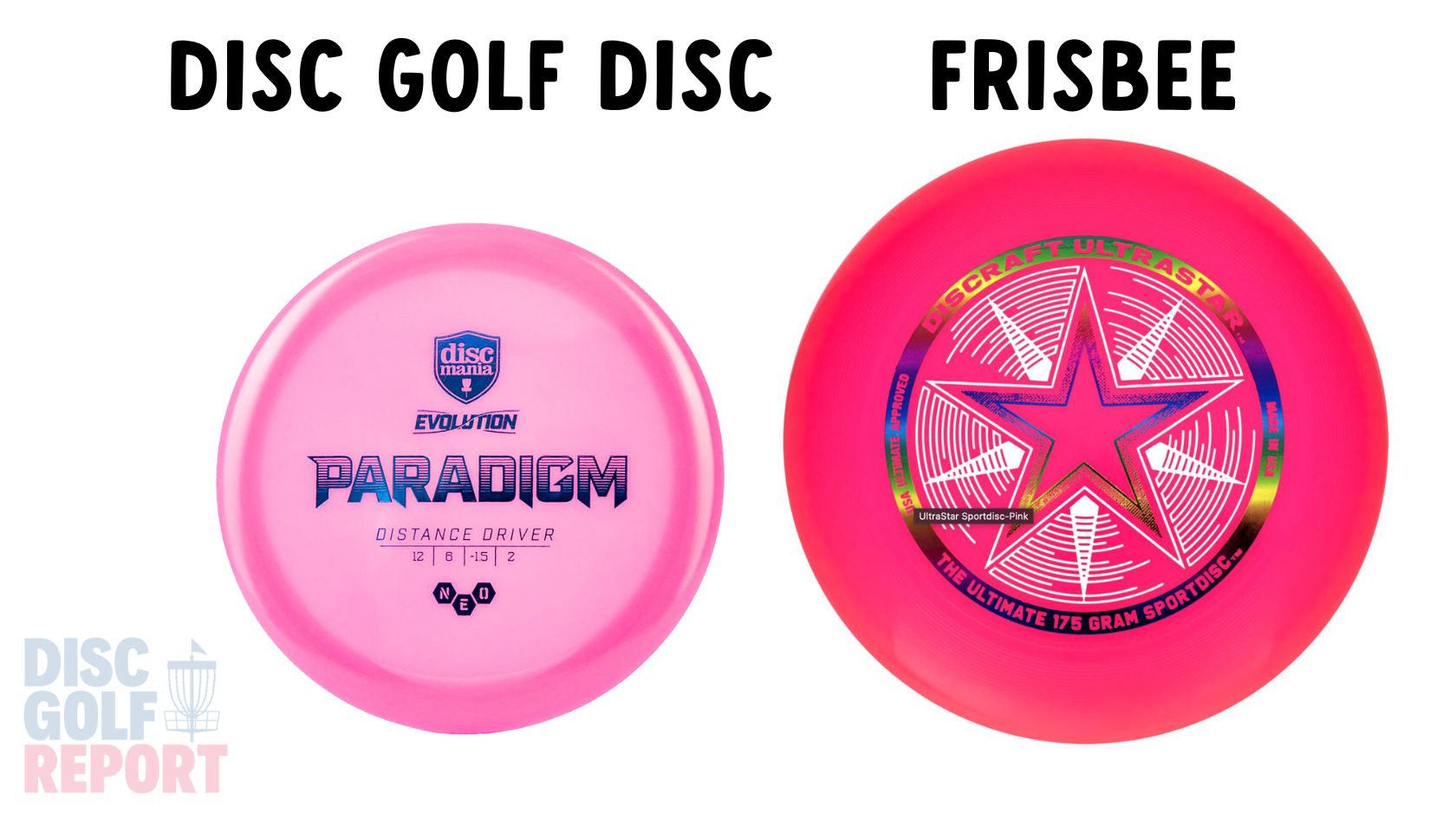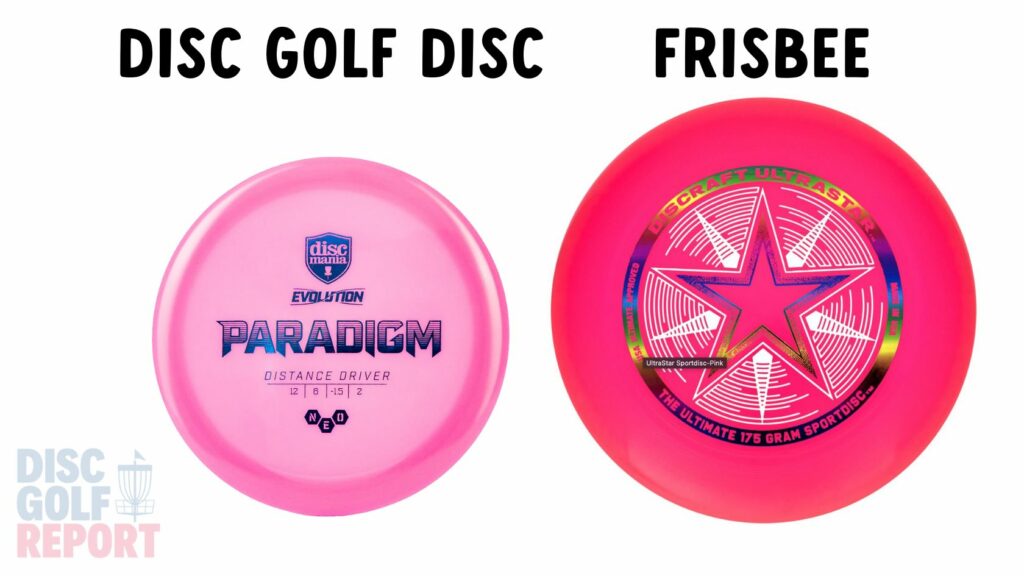Frisbee golf and disc golf are essentially the same game, often using different terms interchangeably. Disc golf is the more commonly used term for the sport that involves throwing discs into baskets.
Disc golf, also known as frisbee golf, is an engaging sport that combines the basic principles of golf with the fun of frisbee. Players aim to complete each hole in the fewest throws, navigating various terrains and obstacles. The sport is accessible to a wide range of ages and skill levels, contributing to its growing popularity.
With specialized discs for different shots, similar to golf clubs, players can experience a dynamic and strategic game. Courses are typically laid out in scenic parks and natural settings, offering players not just a competitive challenge but also an opportunity to enjoy the outdoors. The sport’s low cost and minimal equipment requirements make it an appealing activity for those seeking recreation and social interaction.

Credit: m.youtube.com
Tossing Light On The Sport’s Origins
Understanding where and how Frisbee golf and disc golf originated shines a light on today’s popular outdoor activities. Let’s delve into history.
The Birth Of Frisbee Sports
It all started with a simple game involving tossing pie tins, which later evolved into toy flying discs. The Frisbee, as we know it, was inspired by ‘Frisbie’ pie company’s tins. They were used for fun at Yale University as early as the 1920s. Students would shout “Frisbie!” to warn others before flinging the tin.
By the mid-20th century, toys like the Pluto Platter began mirroring the Frisbee’s shape. Walter Morrison invented this plastic version, leading to the birth of the modern Frisbee after being sold to Wham-O.
Disc Golf’s Emergence
Disc golf emerged from these humble beginnings as a structured sport. Ed Headrick, often dubbed ‘the father of disc golf’, introduced the first formal disc golf target in 1975. He designed the Disc Pole Hole, a pole with chains and a basket to catch the discs.
With Ed’s creation, people could now aim for a standard target, bringing consistency to the game. The sport rapidly grew, with courses springing up across the country. By the end of the 1970s, the Professional Disc Golf Association (PDGA) was formed to oversee the sport’s rules.
Terminology And Equipment
Understanding the Terminology and Equipment is key to distinguishing Frisbee Golf from Disc Golf. Both sports share similarities but differ in several aspects. Here’s a detailed look at the terms and gear used in each.
Frisbee: A Household Name
The term ‘Frisbee’ is often used interchangeably with ‘Disc Golf’. The original Frisbee is a round, plastic disc by Wham-O. Casual players use it for tossing around in parks. It’s light and designed for fun. In Frisbee Golf, players aim at targets like trees or improvised baskets. The equipment is less standardized. Consider it the recreational cousin.
- Diverse shapes: Frisbees come in many shapes and sizes.
- Material: Made from lighter plastic.
- Usage: Great for casual play, less precise for competitive games.
Disc Golf: The Professional Twist
Disc Golf, on the other hand, has specialized equipment. Players throw heavier and more aerodynamic discs. Each disc has a specific purpose. There are drivers, mid-range discs, and putters. The sport follows strict rules with courses featuring metal baskets as holes. It’s the structured, competitive version.
- Drivers: Designed for distance, fast and sharp-edged.
- Mid-range discs: Thicker and more stable for control.
- Putters: Heavier and slower for precision.
| Disc Type | Use | Characteristics |
|---|---|---|
| Driver | Long-distance throws | Aerodynamic, sharp edges |
| Mid-range | Controlled throws | Stable, thicker build |
| Putter | Short-distance to target | Heavy, slow, precise |
Playing The Game
Frisbee Golf and Disc Golf may sound similar, but they’re quite different!
Each game has unique rules and strategies.
Frisbee Golf Gameplay And Rules
Frisbee Golf, also known as Frolf, uses rules much like traditional golf.
- Players throw a frisbee from a tee area.
- The goal is to hit an elevated metal basket.
- Fewest throws wins the hole.
You play on a course with 9 or 18 holes.
Scores are often recorded as:
| Hole | Par | Score |
|---|---|---|
| 1 | 3 | +1 |
| 2 | 4 | -2 |
Players aim for the lowest possible score to win.
Disc Golf Strategies And Scoring
In Disc Golf, precision and strategy are key.
- Different discs for drives, mid-range, and putting.
- Understanding wind patterns is vital.
- Obstacles such as trees make for challenging play.
Disc golfers score similarly to frisbee golf:
- Each throw counts as a stroke.
- Par refers to the number of throws expected.
- Score under par is good.
The player with the lowest score throughout the course wins.

Credit: en.wikipedia.org
Courses And Locations
For those eager to understand the playgrounds of Frisbee and Disc Golf, it’s crucial to explore their courses and locations. Each game has its unique terrain and setup, offering distinct experiences. Let’s dive into the world where these sports unfold.
Casual Frisbee Golf SettingsCasual Frisbee Golf Settings
Frisbee Golf, often played informally, doesn’t demand specific locations. Players choose parks or beaches as their playing grounds, where the natural landscape sets the challenge. Improvised courses become part of the fun, with trees, benches, or posts serving as targets.
- Public parks
- Beaches
- Campgrounds
- College campuses
It’s the casual appeal that invites all ages, turning any open area into a game zone.
Designed Disc Golf CoursesDesigned Disc Golf Courses
Disc Golf takes the sport a notch higher, with dedicated courses designed to challenge players. These courses are often marked with chain baskets as targets, and tee pads signaling the start of each hole. The layouts meticulously plotted through woods or open fields add layers of skill requirement.
| Features | Description |
|---|---|
| Tee Pads | Starting point for players at each hole |
| Chain Baskets | Permanent targets to aim for |
| Signage | Guides players around the course |
| Varied Terrain | Incorporates hills, trees, and water hazards |
Courses are usually found in specialized disc golf parks, recreation centers, or embedded in multi-use parks. These locations provide an exclusive setting for enthusiasts and professionals alike, promoting skill development in the sport.
Communities And Competitions
The worlds of Frisbee Golf and Disc Golf may seem similar at first glance. Yet, their communities and competitions paint different pictures. These sports’ cultures are distinct in participation, social dynamics, and competitive edges.
Social Aspects Of Frisbee Golf
Frisbee Golf, also known as Frolf, has a laid-back vibe. Friends gather in local parks for casual rounds. Unlike Disc Golf, Frisbee Golf is less formal. Players often design their own courses. It’s about fun over competition. Newcomers can easily join in. Most players value the game’s social component. It’s a chance to enjoy the outdoors and connect.
- Families and friends make their own courses.
- No strict rules to follow.
- Leisure and recreation are key.
Disc Golf Tournaments And Recognition
Disc Golf steps up the competitive spirit. It has leagues across the world. Formal tournaments are common. Some are even televised. The Professional Disc Golf Association (PDGA) oversees these events. Players aim for official course pars and rankings. Professionals can make a career out of Disc Golf.
| Tournament Type | Description | Level |
|---|---|---|
| Local Leagues | Weekly games for local players | Amateur |
| National Tours | Competitions across the country | Professional |
| World Championships | Global event for top players | Elite |
- Organized by PDGA and local clubs.
- Structured rules and scorecards.
- Titles and prizes for winners.

Credit: discgolfreport.com
Popular Misconceptions
Popular Misconceptions often swirl around the topic of Frisbee Golf and Disc Golf. People frequently interchange these terms. Yet, differences exist that set them apart. In this section, we unpack the confusions to set the record straight.
Clearing Up Common Confusions
Frisbee Golf and Disc Golf sound alike, but they are not twins. The term “Frisbee” is a registered trademark. It refers to a particular type of flying disc. Discs used in Disc Golf are not all Frisbees. Indeed, they come in various shapes and weights, each tailored for the game.
- Frisbees are for casual play.
- Disc Golf discs are for sport.
- All Frisbees are discs, but not all discs are Frisbees.
Achieving Clarity In Sport Nomenclature
Enthusiasts insist on clarity. Disc Golf is the correct term for the sport. Imagine calling soccer ‘Ball Game’ just because it uses a ball. It gets confusing. Disc Golf players use a variety of discs. Each serves a purpose on the course, much like clubs in golf.
| Term | Usage |
|---|---|
| Frisbee Golf | A casual term, often incorrect for the sport |
| Disc Golf | The official name of the sport |
Frequently Asked Questions On What Is The Difference Between Frisbee Golf And Disc Golf
Why Is Disc Golf Not Called Frisbee Golf?
Disc golf is not called frisbee golf because “Frisbee” is a trademarked name owned by Wham-O. The sport uses discs, which are similar but not identical to Frisbees, hence “disc golf” is the generic term.
Can You Use A Frisbee For Disc Golf?
You can play disc golf with a Frisbee, but for improved accuracy and distance, specialized disc golf discs are recommended. Regular Frisbees differ in weight and shape, which can affect performance during the game.
Is Ultimate Frisbee The Same As Disc Golf?
No, Ultimate Frisbee is a team sport similar to soccer, while disc golf is played individually, akin to golf, aiming discs at specific targets.
Why Do They Call It Disc Golf?
Disc golf is so named because players throw discs towards targets, similar to traditional golf with balls and clubs. This sport combines frisbee tossing with golf’s principles of navigating a course in the fewest attempts.
Conclusion
Understanding the subtleties between frisbee golf and disc golf enhances your play and appreciation of each sport. Both offer unique experiences with shared roots and passionate communities. Embrace either game’s quirks and enjoy the challenge. Next time you hit the course, you’ll have the insight to ace whichever version you play.
